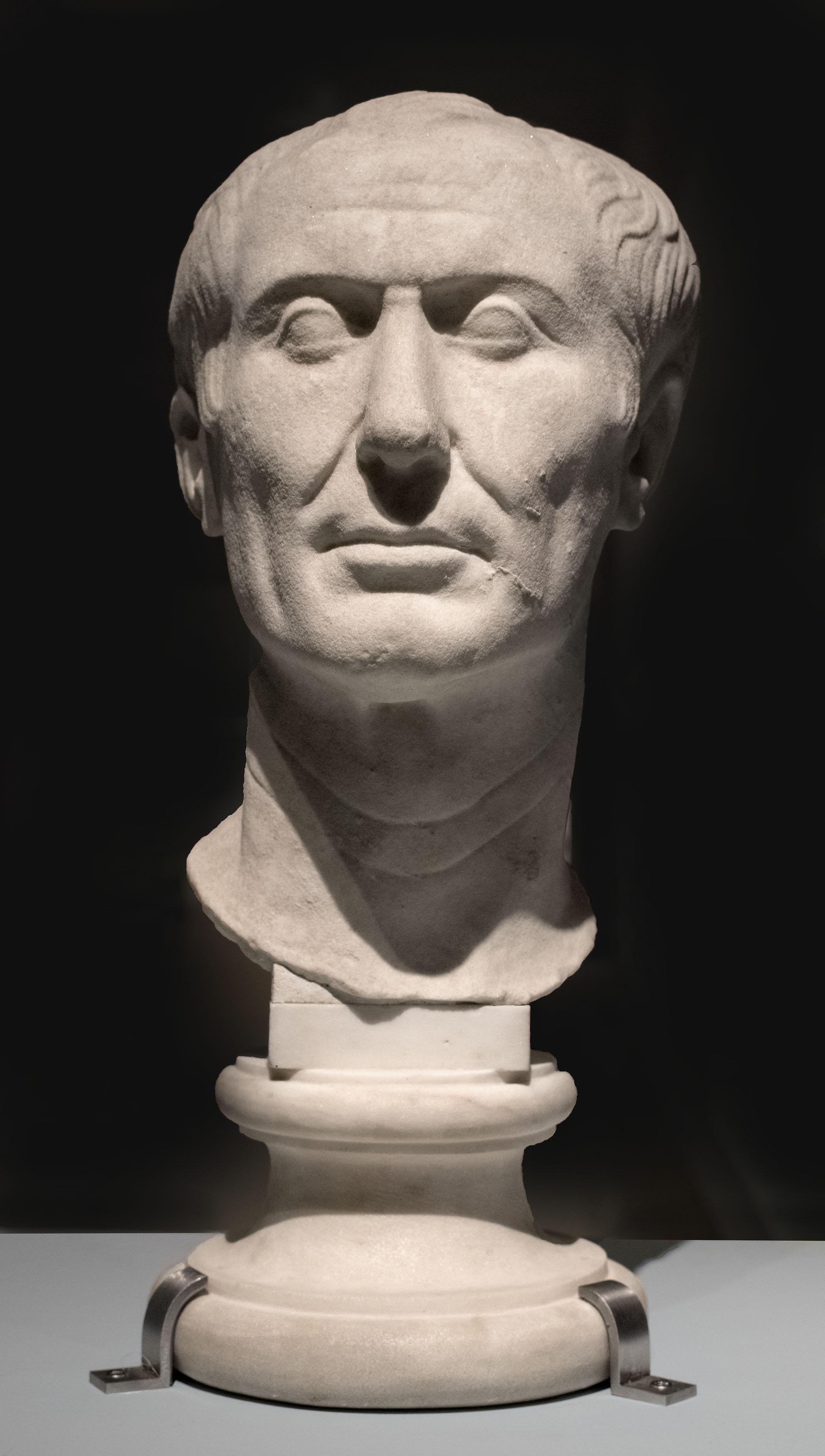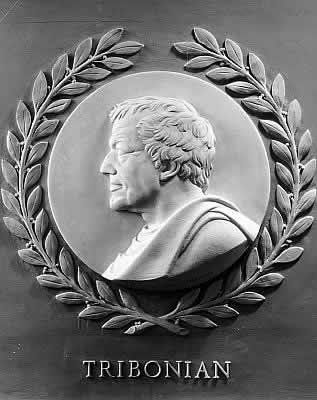Lex Iulia De Repetundis on:
[Wikipedia]
[Google]
[Amazon]
 The ("Julian law on corruption") was a foundational corruption law of the late
The ("Julian law on corruption") was a foundational corruption law of the late
 Most of the evidence of the is preserved by commentaries of Roman jurists; its provisions were still in force as late as the Justinianic ''
Most of the evidence of the is preserved by commentaries of Roman jurists; its provisions were still in force as late as the Justinianic ''
 The ("Julian law on corruption") was a foundational corruption law of the late
The ("Julian law on corruption") was a foundational corruption law of the late Roman Republic
The Roman Republic ( la, Res publica Romana ) was a form of government of Rome and the era of the classical Roman civilization when it was run through public representation of the Roman people. Beginning with the overthrow of the Roman Kingd ...
and the Roman Empire
The Roman Empire ( la, Imperium Romanum ; grc-gre, Βασιλεία τῶν Ῥωμαίων, Basileía tôn Rhōmaíōn) was the post- Republican period of ancient Rome. As a polity, it included large territorial holdings around the Medite ...
. Its provisions covered all magistrates, governors, and the family and employees thereof. Covered persons were prohibited of taking money to make, not make, or influence any official action.
It was passed by Gaius Julius Caesar
Gaius Julius Caesar (; ; 12 July 100 BC – 15 March 44 BC), was a Roman general and statesman. A member of the First Triumvirate, Caesar led the Roman armies in the Gallic Wars before defeating his political rival Pompey in a civil war, and ...
during his first consulship in 59 BC with the support of the Senate
A senate is a deliberative assembly, often the upper house or chamber of a bicameral legislature. The name comes from the ancient Roman Senate (Latin: ''Senatus''), so-called as an assembly of the senior (Latin: ''senex'' meaning "the e ...
. It continued in force as amended through into the Justinianic era, with fragments and commentaries codified into the ''Corpus Juris Civilis
The ''Corpus Juris'' (or ''Iuris'') ''Civilis'' ("Body of Civil Law") is the modern name for a collection of fundamental works in jurisprudence, issued from 529 to 534 by order of Justinian I, Byzantine Emperor. It is also sometimes referr ...
''.
History
The Roman Republic had, since it acquired an empire, struggled with the problem of provincial governors extorting their provincial subjects. By 171 BC provincials could bring complaints against governors to Rome. The first permanent court ( la,quaestio perpetua
A quaestio perpetua (also judicia publica) was a permanent jury court in the Roman republic. The first was established by the ''lex Calpurnia de repetundis'' in 149 BC to try cases on corruption and extortion. More were established in follo ...
) in Rome was established by the lex Calpurnia
The ''lex Calpurnia de repetundis'' ("''law of Calpurnius for the recovery of property"'') was a Roman law sponsored in 149 BC by the tribune of the plebs Lucius Calpurnius Piso. It established the first permanent criminal court in Roman his ...
in 149 specifically to try extortion cases. Available remedies were expanded by Gaius Gracchus
Gaius Sempronius Gracchus ( – 121 BC) was a reformist Roman politician in the 2nd century BC. He is most famous for his tribunate for the years 123 and 122 BC, in which he proposed a wide set of laws, including laws to establish ...
' in 123 BC and later during Sulla's rule.
Gaius Julius Caesar
Gaius Julius Caesar (; ; 12 July 100 BC – 15 March 44 BC), was a Roman general and statesman. A member of the First Triumvirate, Caesar led the Roman armies in the Gallic Wars before defeating his political rival Pompey in a civil war, and ...
was consul in 59 BC. During that year he had, with the support of his allies in what is misleadingly termed in modern times the First Triumvirate
The First Triumvirate was an informal political alliance among three prominent politicians in the late Roman Republic: Gaius Julius Caesar, Gnaeus Pompeius Magnus and Marcus Licinius Crassus. The constitution of the Roman republic had many v ...
, pursued an aggressive and controversial reform programme. Brought late in his consular year, the was one of his least controversial bills. It is sometimes suggested that Caesar, whose reputation for avarice is well known from his pillaging of Spain during his post-praetorian governorship there, brought the bill in Pompey's name. It contained some 200 clauses covering all manner of hitherto semi-illegal practices that republican governors had used to line their own pockets.
Caesar, who had come to political blows repeatedly with Marcus Porcius Cato Marcus Porcius Cato can refer to:
* Cato the Elder (consul 195 BC)
* Cato the Younger (praetor 54 BC)
* Marcus Porcius Cato (consul 118 BC)
* Marcus Porcius Cato (consul 36)
* Marcus Porcius Cato (father of Cato the Younger)
* Marcus Porc ...
and allies thereof during his consular year, found their support for the anti-extortion bill. Cato likely saw the bill as a positive for the state and, importantly, legislation brought in good faith for the state rather than for Caesar's own political advancement. Modern scholars have suggested that some of the provisions in the were in fact added on Cato's initiative: the clauses protecting the rights of free communities had been an objective of Cato's the previous year., favourable citing
Provisions
 Most of the evidence of the is preserved by commentaries of Roman jurists; its provisions were still in force as late as the Justinianic ''
Most of the evidence of the is preserved by commentaries of Roman jurists; its provisions were still in force as late as the Justinianic ''Digest
Digest may refer to:
Biology
*Digestion of food
*Restriction digest
Literature and publications
*''The Digest'', formerly the English and Empire Digest
*Digest size magazine format
* ''Digest'' (Roman law), also known as ''Pandects'', a digest ...
''. The third century AD jurist Aemilius Macer
Aemilius Macer of Verona was a Roman didactic poet. He authored two poems, one on birds (''Ornithogonia''), a translation of a work by Boios, and the other on the antidotes against the poison of serpents (''Theriaca''), which he imitated from th ...
held that the created a general prohibition against taking any object of value to make or not make any official act. Such acts included civil judgements, imprisonments, criminal judgements, sentencing decisions, and decisions on status.
During the republican period, claims (extortion) were brought before a quaestio perpetua
A quaestio perpetua (also judicia publica) was a permanent jury court in the Roman republic. The first was established by the ''lex Calpurnia de repetundis'' in 149 BC to try cases on corruption and extortion. More were established in follo ...
, one of the permanent jury courts in Rome, by private prosecution. One notable and "awkward" exception from the ostensibly comprehensive anti-bribery law were penalties for equestrian jurors taking bribes in Rome: such jurors were legally immune and regularly bribed with enormous sums by defendants. By the imperial period, process under the was largely by with sentences imposed starting at exile. Sentencing enhancements were applied if the illegal action caused someone to die or otherwise be punished.
It applied to all magistrates, persons with official power or administrative duties, legates, and employees thereof. Family members of covered persons also were covered if they engaged in corrupt activities to influence that covered person. People who took a share in bribe proceeds were also liable. Money damages were set for bribery cases in the (123 BC) at double of the bribes paid.
Governors were also prohibited from forcing provincial communities to defer the cost of maintaining Roman troops within their communities. Senators also were prohibited from voting themselves onto putative embassies to the provinces for the actual purpose of conducting private business. The law also prohibited governors from demanding supposedly voluntary gifts from their provincial subjects. The ability for governors to misappropriate plunder won in battle and force repayment of debts by force from "free cities" also was curtailed. The account books of provincial governors also had to be deposited on the close of a governor's term both at Rome and at two cities within the province.
See also
*List of Roman laws
This is a partial list of Roman laws. A Roman law (Latin: ''lex'') is usually named for the sponsoring legislator and designated by the adjectival form of his ''gens'' name ('' nomen gentilicum''), in the feminine form because the noun ''lex'' (pl ...
References
Bibliography
* * * * {{Italic title Roman law 1st century BC in the Roman Republic Julius Caesar